10 Best Crypto Wallets in India – Safest BTC Wallets Reviewed
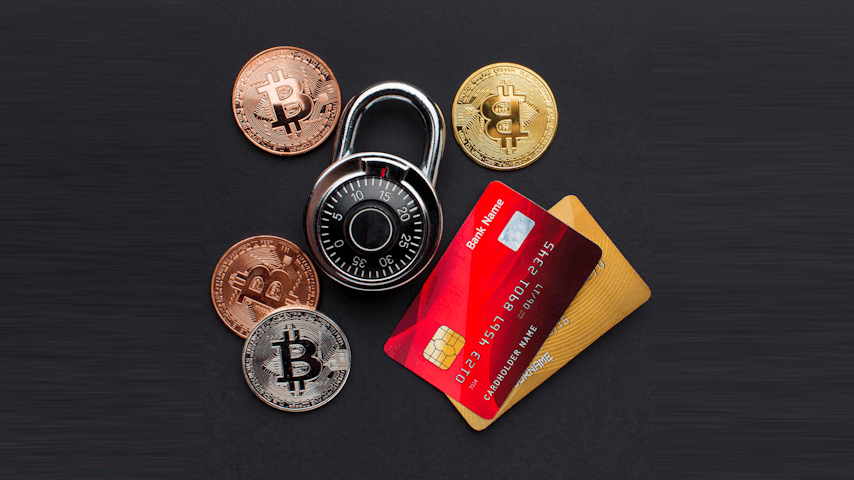
Crypto investors in India will need to carefully choose a wallet. Not only in terms of security and privacy but fees, supported coins, and features.
In this guide, we review the 10 best crypto wallets in India. Read on to discover safe and convenient wallets for storing Bitcoin and other cryptocurrencies in 2024.
List of the Best Crypto Wallets for Indian Investors
Before delving into our comprehensive reviews, here’s a quick overview of the best crypto wallets for Indian investors:
- Best Wallet – Indian investors will find that Best Wallet is the overall best cryptocurrency wallet for their needs. Within one mobile app, you can store your tokens on multiple blockchains and you can swap between them. This removes the need for having multiple wallets for each blockchain. In addition, you’ll be able to store and trade your NFTs, you’ll get access to crypto news and market insights, and you’ll be able to track token sentiment and analytics. If that’s not enough, active Best Wallet users become eligible for the $BEST token airdrop.
- YouHodler – This is is a top rated crypto wallet that comes with multi-chain support and 15% APY on certain coins. A crypto lending program is also available for liquidity along with many other features in an integrated ecosystem with multi-layered functionality. There are five main products offered by YouHodler – MultiHODL, Crypto Loans, Exchange, Yield Account, and Cloud Miner. An ideal wallet for an Indian investor who wants many layers of functionality.
- Ledger – Long-term investors in India might consider the Ledger hardware wallet. Its most basic model, the Ledger Nano S Plus, retails for $79 (about 6,500 INR). This allows Indian investors to keep their crypto tokens offline in cold storage. Ledger wallets are protected by a PIN, and this needs to be entered on the device when making transfers. They also have a software wallet that can be connected to the cold storage wallet.
- Trezor – This is a long standing hardware wallet known for high levels of security while being very simple to operate, which is perfect for the minimalist Indian investor who wants security without complexity. It is simple to set up while still having many top security features to raise the bar even higher when it comes to wallet safety.
- OKX – Those looking for the best crypto wallet in India for non-custodial storage might consider OKX. The OKX wallet is available on most device types, including desktops, mobiles, and browser extensions. It supports thousands of cryptocurrencies across 50 networks, including Bitcoin, Ethereum, and Binance Smart Chain. OKX allows Indian investors to swap and stake cryptocurrencies instantly.
- MetaMask – MetaMask is also a popular non-custodial wallet available to Indians. It supports a mobile app for iOS and Android and an extension for various browsers, including Chrome and Firefox. MetaMask supports tokens on the Ethereum, Binance Smart Chain, and Polygon networks, among others. This wallet comes with an in-built staking tool that supports ETH.
- Trust Wallet – Trust Wallet is a non-custodial wallet for iOS and Android smartphones. It also comes as a browser extension but with limited functionality. More than 70 blockchain networks are supported, and the wallet comes with staking tools. Trust Wallet also allows users to swap crypto tokens without paying any fees.
- MyEtherWallet – One of the best crypto wallets in India for ERC20 tokens is MyEtherWallet. This is a decentralized wallet that gives users complete control of their private keys. MyEtherWallet is free to use and comes with multiple features. This includes staking tools for ETH and the ability to connect to the popular decentralized exchange, AAVE.
- Electrum – Bitcoin holders in India might consider the Electrum wallet. While very basic in nature, it comes packed with security tools. This includes offline storage, view-only wallets, and multi-sig permissions. Electrum is available as an Android app or desktop software for Windows, Mac, and Linux. This is a decentralized wallet offering non-custodial storage.
- Exodus – Investors in India with a diverse range of cryptocurrencies will find that Exodus is a potential option. It supports thousands of tokens, ranging from Bitcoin and Monero to BNB, Dogecoin, and Solana. Exodus can be downloaded as a mobile app or desktop software. It is also compatible with Chrome browsers.
Top Crypto Wallets in India: Full Reviews
Now that we have ranked the best crypto wallets in India, we’ll move on to our in-depth reviews of each provider.
1. Best Wallet – The Overall Best Crypto Wallet for Indian Traders and Investors
Having researched the top crypto wallets in India, we found that Best Wallet ranks as the overall best option. This is a wallet that aims to make competitors obsolete.
For starters, it supports coins and tokens from multiple blockchains, including Ethereum, Polygon and BNB, with Bitcoin blockchain to come in the future. This makes having multiple wallets to store coins on multiple blockchains redundant.

What’s more, you can swap these tokens without leaving your app via the Best DEX. This is a decentralized exchange where anyone can connect their crypto wallet and swap their tokens.
To make things more interesting, active users of both Best Wallet and Best DEX are eligible for the $BEST token airdrop, which is planned for Phase 6 of the wallet’s roadmap.
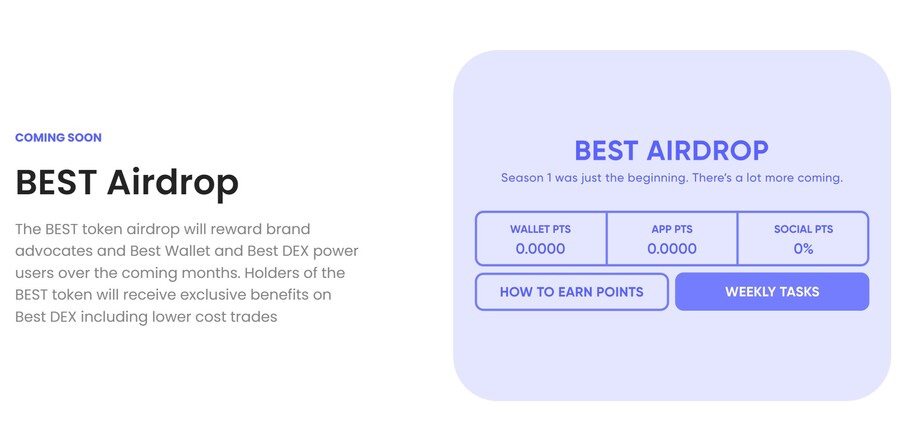
The $BEST token is designed to be a governance token where you can vote in the Best Wallet’s DAO. But it will also be a utility token, which you can stake to get benefits including feeless swaps, token and NFT airdrops and more.
The Best Wallet is now available for download on the App Store and Google Play, but it will soon be available as a browser extension as well.
Some of its upcoming features include market insights where you get to use advanced price charts. There will also be token analytics for you to track token sentiment, see upcoming token airdrops or monitor trending tokens to invest in.
And if you’re worried about the app’s security, don’t be. Best Wallet employs two-factor authentication, four-digit password as well as biometrics to unlock it. Even if your device falls into the wrong hands, they won’t be able to access your wallet.
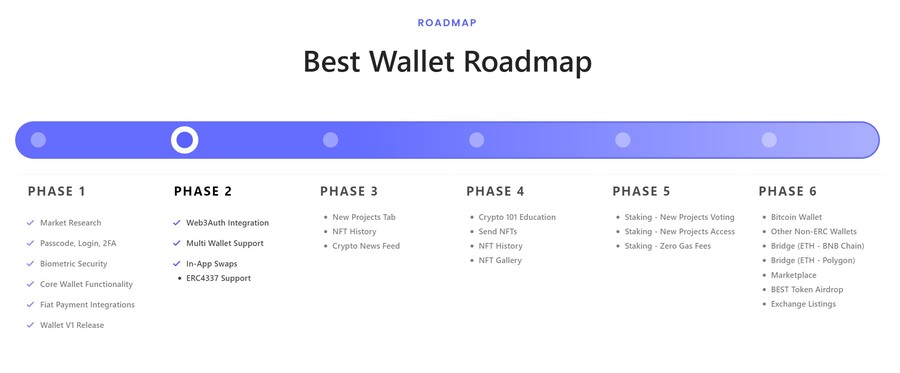
All this makes Best Wallet indeed the best crypto wallet that focuses on chain interoperability, security and simplicity.
Follow Best Wallet on X and on the Best Wallet Telegram channel to get information about new releases and token airdrops.
| Type of Crypto Wallet | Custodianship | Supported Coins | Fee to Buy Bitcoin | App? | Staking/Interest? | Staking/Interest Rate |
| Mobile app | Non-custodial | Supported tokens on various networks, including Ethereum, Polygon and BNB Smart Chain | Depends on third-party service providers when you buy with a card | Yes | Staking is a planned feature | To be announced |
Pros
- Overall best crypto wallet for Indian investors
- Supports multiple blockchains like Ethereum, Polygon and BNB
- Employs 2FA and biometrics to secure the app
- Buy and sell cryptocurrencies without leaving the wallet
- NFT gallery and marketplace
- Using the app makes you eligible for $BEST token airdrop in the future
Cons
- No crypto wallet browser extension available at the moment
- Third-party fees for buying crypto with a credit card
2. YouHodler – Integrated Crypto Wallet With Multiple Features and Up to 15% APY
YouHodler is a premium Web3 wallet with a wide range of features. Users can earn up to 15% APY and take advantage of a generous lending program. YouHodler has five major assets – MultiHODL, Crypto Loans, Exchange, Yield Account, and Cloud Miner. This is ideal for Indian investors who want their crypto wallet to serve many different purposes.
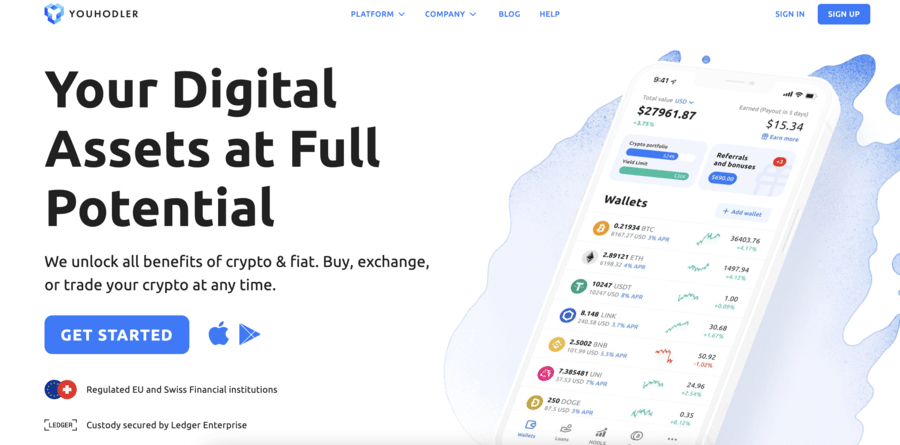
MultiHODL is a fully fledged trading experience with many tools and features for traders and investors. Trading fees are very low and transparent, and it’s possible to earn 12% APR on deals while you trade. Deals can be opened with fiat or stablecoins.
Over 60 different trading pairs are on offer along with automated trading via an API. Crypto loans are available with a minimum of $100 and YouHodler has a high loan to value ratio of 90%. Over 50 coins are accepted as collateral and loans are available in fiat or stablecoins.
The exchange is available in over 100 different countries and has support for multiple coins. Cryptos can be converted through the exchange within the desktop or mobile applications.The yield account offers up to 15% yield on over 55 assets while the Cloud Miner allows up to 0.2 BTC per month with a just few clicks.

In short, this is a very versatile tool with many features. It is possible to preorder a YouHodler debit card at the present time and a loyalty program can help to maximize rewards.
YouHodler is regulated by Swiss and EU institutions and has an excellent rating on TrustPilot. Wallet funds are secured using Ledger Vault technology – with $150M in pooled crime insurance at the time of this writing.
More details on this multifaceted crypto wallet can be found on the Twitter and Telegram accounts.
Pros:
- Supports many different cryptocurrencies
- Up to 15% yield on select cryptocurrencies
- Crypto loans with 90% LTV
- Crypto to fiat exchange
- Many different features and offerings in one ecosystem
Cons:
- $100 minimum crypto loan
| Type of Crypto Wallet | Custodianship | Supported Coins | Fee to Buy Bitcoin | App? | Staking/Interest? | Staking/Interest Rate |
| Hot Wallet | Non-custodial | Bitcoin, Ethereum, Polygon, Solana and more | There’s no fee except for the bid/ask spread | Yes | Yes | Up to 15% |
3. Ledger – Cold Crypto Wallet Device for the Highest Security
Ledger is one of the best crypto wallets for Indian investors seeking the highest level of security. Launched in 2014, Ledger offers hardware devices that keep cryptocurrencies offline in cold storage. This is the safest way to store digital assets, as they are not exposed to hacking attacks. In fact, the Ledger wallet even remains offline when transferring funds.
This is because the wallet connects to mobile and desktop devices via a USB cable or Bluetooth. Moreover, outgoing transactions can only be confirmed on the device itself. This is achieved by entering a PIN, which the user creates when setting the Ledger device up. Ledger also provides users with a 24-word passphrase.
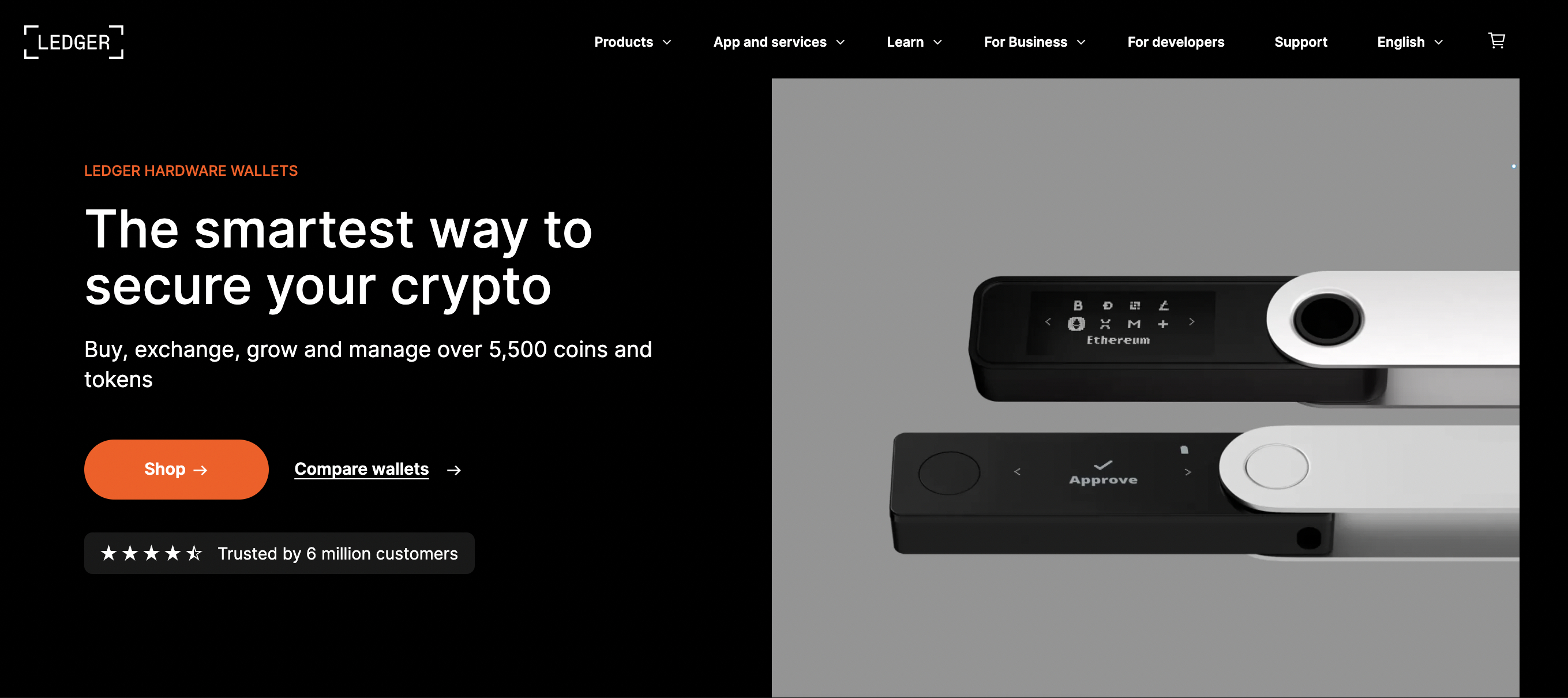
This is the private key for the wallet, so should be kept somewhere safe. Ledger also allows users to add a 25th word of their choosing – up to 100 characters. This means that even if a bad actor knows the 24-word passphrase, they wouldn’t be able to access the wallet. We also like that Ledger can be recovered remotely if the device is stolen.
Ledger comes with both a mobile and desktop app (Ledger Live) where users can monitor their crypto portfolios. The Ledger app also allows users to connect with third-party services such as 1inch DEX, MoonPay, and Lido staking. They provide a software wallet that can be connected to the hardware wallet for increased functionality.

Ledger is a major competitor to Trezor, another hardware wallet. It also offers three main products – Ledger Stax, Ledger Nano X, and Ledger Nano S Plus. So depending on the available funds and the levels of security required, different products are available to Indian investors. The cheapest option is the Ledger Nano S Plus, retailing for $79. The different models can be compared on the website to see which one best matches your preferences.
Ledger supports more than 5,500 cryptocurrencies across many networks. This includes all tokens on the Bitcoin, Ethereum, Binance Smart Chain, Cardano, Monero, XRP, and Stellar networks.
| Type of Crypto Wallet | Custodianship | Supported Coins | Fee to Buy Bitcoin | App? | Staking/Interest? | Staking/Interest Rate |
| Hardware wallet | Non-custodial | Over 5,500 cryptocurrencies across multiple networks, including Bitcoin, Ethereum, Binance Smart Chain, Cardano, Monero, XRP, and Stellar. | Fiat payments go through Simplex, so fees of up to 5% will apply. | Yes | Yes, supports multiple staking coins, including Tezos, Tron, Cosmos, Solana, and Ethereum. | Not stated – will depend on the staking network |
Pros
- Best Bitcoin wallet in India for long-term security
- Supports over 5,500 cryptocurrencies
- Custom tokens can be added across multiple networks
- Stake cryptocurrencies while keeping the private keys in cold storage
Cons
- Simplex processes fiat payments – so fees of up to 5% will apply
- Ledger is not an open-source wallet
4. Trezor – Simple and Popular Hardware Wallet With High Levels of Security
Trezor has been around for over 10 years now, is extremely well respected, and is simple to use while being very powerful. As a hardware wallet, Trezor is ahead of other hot wallets when it comes to security. Because the funds are kept in your physical Trezor device instead of online, it is much harder for them to be stolen.

So a major USP with Trezor is that the user has full ownership over all coins. Data is also anonymous, because when users login to web applications they are often far more vulnerable. Three versions are currently available – Model One, Trezor Safe 3, and the advanced Model T. These models can be compared on the site.
The beauty of Trezor is that it is very simple to set up and operate, but there are multiple optional add-on features that users can select depending on what they are looking for. For instance, it’s possible to create multiple wallets within Trezor, or take advantage of CoinJoin for increased privacy. A sign and verify features allows crypto addresses to be vetted, while the Tor browser is supported within the Trezor application. Plus, a whopping 8,000 coins and tokens are supported.

For the Indian investors who are purely concerned with security, Trezor is definitely the way to go. It has an outstanding track record, is very secure, and is easy to set up. It does not offer yields or cards or a lot of investment related incentives as compared to other wallet providers, but all of these features can cause additional security risks, as they need to be connected to the web to work.
Users can, however, connect their hardware wallet to the Trezor suite to track and manage their portfolio.
Trezor, in sum, is a simple and effective tool designed to keep crypto assets stored securely and anonymously.
| Type of Crypto Wallet | Custodianship | Supported Coins | Fee to Buy Bitcoin | App? | Staking/Interest? | Staking/Interest Rate |
| Hardware | Non Custodial | 8,000+ | Varies | Yes (Trezor Suite) | No | NA |
5. OKX – Decentralized Wallet Aimed at Experienced Indian Traders
OKX is the best crypto wallet for Indian traders with solid experience. The wallet is decentralized, offering Indians non-custodial storage. This means that only OKX users have access to their private keys. Moreover, there is no requirement to open an account with OKX, or provide any personal information or KYC documents.
The OKX wallet is supported across most device types. This includes a desktop and mobile app, as well as a browser extension for Chrome. All options are free of charge. We also like that OKX is one of the few providers to support Multi-Party Computation (MPC) wallets. Once activated, this offers a major safeguard against hackers.
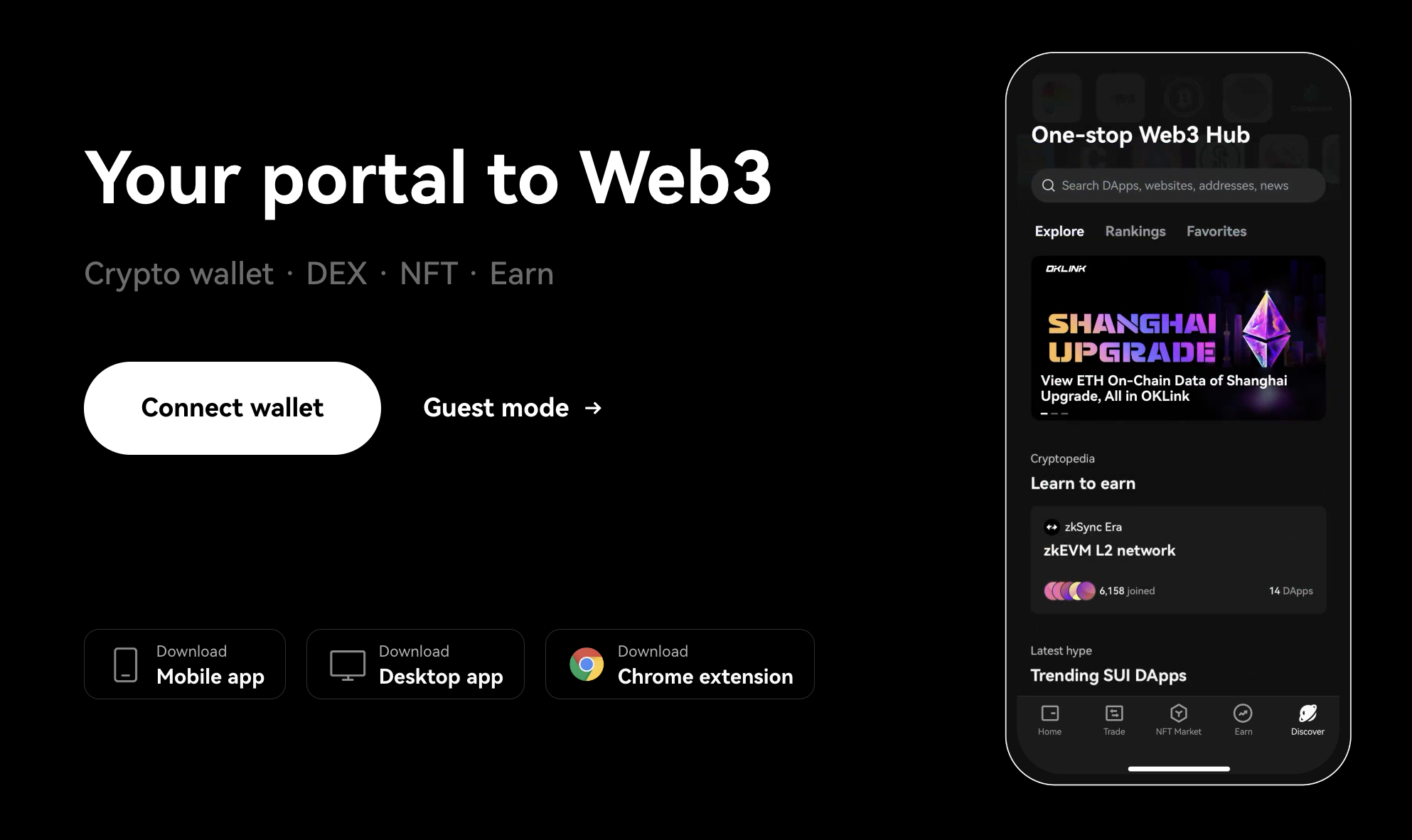
This is because MPC wallets split the private keys across multiple devices and locations. In terms of supported coins, OKX is compatible with over 50 blockchain standards. Considering that custom tokens can be added, this means that most cryptocurrencies are supported. Moreover, OKX is the best crypto wallet in India for earning passive income.
The wallet connects to over 200 decentralized exchanges (DEXs), including Compound, Aave, and JustLend. Users can search for the coin they want to earn interest on, and OKX will list each DEX by the APY offered. The same process is offered when swapping cryptocurrencies. OKX also supports an NFT marketplace with competitive fees.
| Type of Crypto Wallet | Custodianship | Supported Coins | Fee to Buy Bitcoin | App? | Staking/Interest? | Staking/Interest Rate |
| Mobile, desktop, and browser-based wallet | Non-custodial | Supports over 50 blockchain standards. Custom tokens can be added. | Does not support INR payments. Crypto-to-crypto trades are supported – fees are displayed when setting up the order. | Yes | Yes, in-built aggregator bridges to over 200 exchanges. Supports staking, savings accounts, and liquidity farming | Up to 998.1% on yield farming pools. Up to 29.9% on savings accounts. |
Pros
- Best crypto wallet for Indian traders seeking decentralized storage
- Connects to over 200 DEXs for token swaps and earning interest
- Offers MPC security – which is one of the safest ways to protect private keys
- Compatible with over 50 networks
Cons
- Not suitable for beginners
- Does not support INR deposits
6. MetaMask – Non-Custodial Wallet App and Browser Extension With 30 Million Users
MetaMask is another popular crypto wallet that offers non-custodial storage. The wallet is free to use, and it takes just seconds to set up. Users will secure their MetaMask wallet with a password, but there is no two-factor authentication or multi-sig permissions. MetaMask provides users with their private keys, which are encrypted as a 12-word passphrase.
This means that only the user has access to their crypto wallet. MetaMask processes transactions quickly, and there are no additional fees, other than the standard blockchain charge. The wallet supports multiple blockchains, including Ethereum Polygon, Arbitrum, Optimism, Avalanche, and Binance Smart Chain.
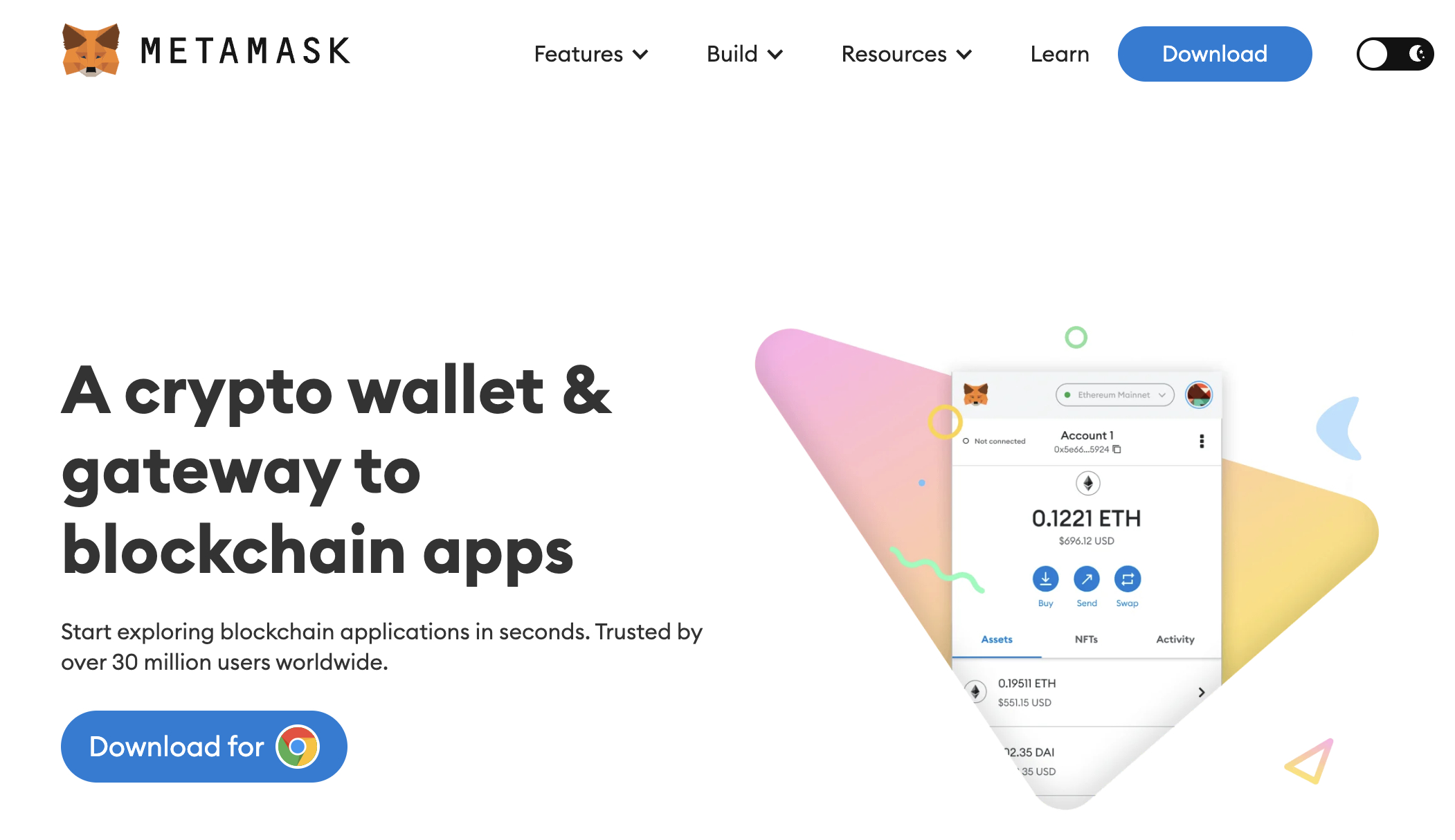
However, MetaMask does not support Bitcoin. This will be a major drawback for many investors in India. That said, we like that MetaMask has an in-built staking tool. This allows investors to earn ETH rewards via Rocket Pool and Lido. Currently, these providers are offering yields of 3.21% and 3.97%, respectively.
MetaMask also supports in-app token swaps. This includes the option of swapping across two different chains, such as BNB to ETH or USDC for ARB. MetaMask charges a 0.875% fee for this service. MetaMask indirectly supports INR deposits too. However, this will cost up to 5%. Accepted payment methods include debit/credit cards, UPI, and IMPS.
| Type of Crypto Wallet | Custodianship | Supported Coins | Fee to Buy Bitcoin | App? | Staking/Interest? | Staking/Interest Rate |
| Browser extension and mobile app | Non-custodial | All ERC20 tokens. Also supports the Arbitrum, Binance Smart Chain, Optimism, Avalanche, and Polygon networks. | Does not support Bitcoin. But other cryptocurrencies can be purchased with INR. Fees of between 3-5%, depending on the payment method and processor. | Yes | Yes, only supports Ethereum | Up to 3.97% |
Pros
- Anonymous wallet storage with full control of the private keys
- Available as an app or browser extension
- Free to use and no markups on GAS fees
- Supports all ERC20 tokens – plus a selection of other networks
Cons
- INR deposits cost up to 5%
- Does not support Bitcoin, XRP, Solana, and many other leading networks
7. Trust Wallet – Decentralized Wallet App Supporting 4.5 Million Digital Assets
Trust Wallet is a leading decentralized wallet app for iOS and Android. The wallet also comes as a browser extension for Chrome. However, this comes with fewer features than the Trust Wallet app. Nevertheless, Trust Wallet offers non-custodial storage on a completely fee-free basis. Users are provided with a random 12-word passphrase when setting the wallet up.
Trust Wallet requires users to re-enter the passphrase to ensure it was written down correctly. After that, users will be able to send, receive, and store more than 4.5 million digital assets across over 70 blockchain networks. This includes everything from Bitcoin, Cardano, Solana, and XRP to Stellar, Ethereum, Arbitrum, and Polygon.
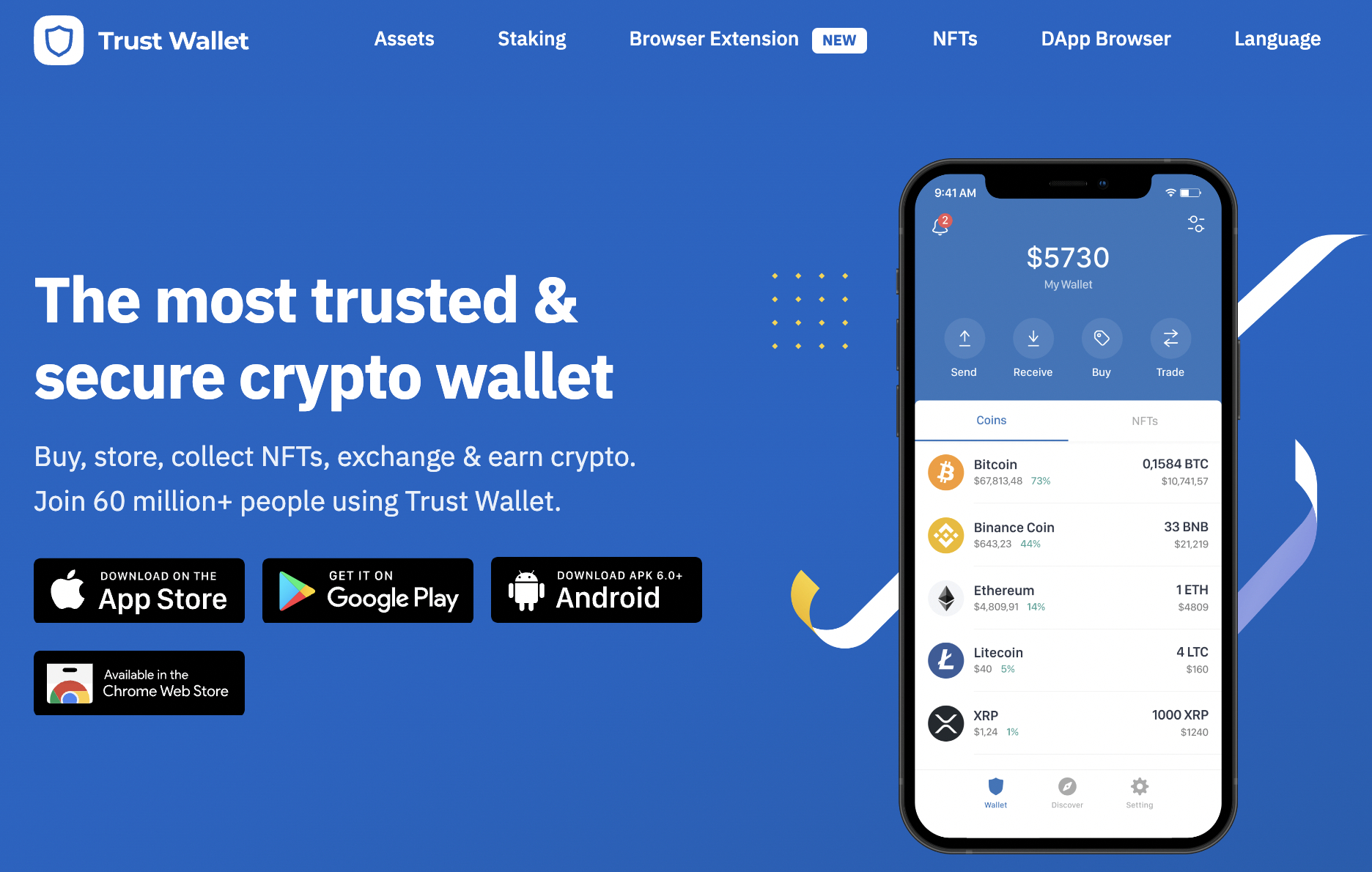
Trust Wallet also supports NFTs, not to mention staking tools. The latter supports some of the most popular proof-of-stake coins, including Cosmos, Tron, Algorand, BNB, and Tezos. Trust Wallet also supports cross-chain token swaps. There are no fees charged when swapping or staking cryptocurrencies.
Trust Wallet also connects to the decentralized web. This enables users to access popular dApps like OpenSea, PancakeSwap, Compound, Uniswap, and SushiSwap. When using a third-party dApp, Trust Wallet balances can be used to trade and earn cryptocurrencies seamlessly and safely. Finally, while INR payments are supported, fees of up to 5% are charged.
| Type of Crypto Wallet | Custodianship | Supported Coins | Fee to Buy Bitcoin | App? | Staking/Interest? | Staking/Interest Rate |
| Browser extension and mobile app | Non-custodial | 4.5 million cryptocurrencies and NFTs across over 70 blockchain networks | Up to 5%, as transactions are processed by Simplex | Yes | Yes, offers an in-built staking tool for many proof-of-stake cryptocurrencies | Up to 19.3% |
Pros
- Best Bitcoin app for iOS and Android users
- Over 4.5 million cryptocurrencies and NFTs are supported
- Used by more than 60 million investors globally
- Easily connect to third-party dApps like OpenSea and PancakeSwap
Cons
- The browser extension comes with limited features
- High fees when buying crypto with INR
8. MyEtherWallet – Best Crypto Wallet for Storing Ethereum and ERC20 Tokens
Launched in 2015, MyEtherWallet is one of the original Ethereum wallets. it supports all ERC20 cryptocurrencies in existence, as users can add custom tokens via the contract address. MyEtherWallet is a non-custodial wallet and comes with an app for iOS and Android. The wallet is protected with a PIN and backup passphrase.
Users also have the option of keeping their MyEtherWallet offline. We found that most features on MyEtherWallet are user-friendly and require no prior experience. For example, MyEtherWallet connects to StakeWise and Lido, which facilitate Ethereum staking. This allows users to generate passive rewards on idle ETH balances.

MyEtherWallet also connects to selected dApps like Aave. Golem Migrator and MakerDAO will be added in the near future. Additionally, users can also swap ERC20 tokens directly within the wallet. This service is provided by third parties, so keep an eye on fees. That said, standard features on MyEtherWallet are free of charge.
This includes receiving and storing tokens. GAS fees are charged when sending funds to another wallet. But GAS is quoted by the Ethereum blockchain, meaning MyEtherWallet doesn’t make any money from outgoing transactions. In terms of popularity, MyEtherWallet has a 4.7/5 rating on the App Store. On Google Play, MyEtherWallet is rated 4.4/5.
| Type of Crypto Wallet | Custodianship | Supported Coins | Fee to Buy Ethereum | App? | Staking/Interest? | Staking/Interest Rate |
| Mobile app | Non-custodial | Ethereum and all ERC20 tokens | Averages 3-5%, as fiat payments are processed by Moonpay and Simplex. | Yes | Yes, supports Ethereum staking via StakeWise and Lido. | Not stated, determined by the staking provider |
Pros
- Launched in 2015 – making it one of the original Ethereum wallets
- All ERC20 tokens are supported
- Excellent rating of 4.7/5 on the App Store
- Basic features are free – such as storing and receiving tokens
Cons
- Only supports Ethereum-based cryptocurrencies
- Connects to a limited number of dApps
9. Electrum – Self-Custody Bitcoin Wallet With Great Security Features
Electrum is one of the best Bitcoin wallets in India for self-custodial storage. It is one of the original Bitcoin wallets, having first launched in 2011. The wallet is free to use and is supported by Windows, Mac, and Linux desktops. There is also an app for Android smartphones. Users have full control of their private keys, which are encrypted on the respective device.
Although Electrum is a simple Bitcoin wallet, it comes with many useful security features. This includes ‘view-only’ wallets, meaning that the private keys are stored offline. Users can bring the wallet online when they need to send Bitcoin. Another security tool is multi-sig permissions. This requires outgoing transactions to be confirmed from two or more wallets.

Electrum is also popular with its open-sourced nature. This allows the Bitcoin community to monitor the underlying code to ensure there are no vulnerabilities. That said, Electrum will only appeal to long-term investors looking for a safe place to store Bitcoin. It doesn’t offer DeFi tools like staking or token swaps. Nor does it support any altcoins.
| Type of Crypto Wallet | Custodianship | Supported Coins | Fee to Buy Bitcoin | App? | Staking/Interest? | Staking/Interest Rate |
| Desktop software and a mobile app | Non-custodial | Bitcoin | Not supported | Android only | No | N/A |
Pros
- Best Bitcoin wallet for Indians investing in the long term
- Comes with many security tools to keep Bitcoin safe
- No fees charged
- Fast transactions without any markups
Cons
- Does not support any altcoins
- No DeFi features
10. Exodus – Multi-Currency Crypto Wallet With Staking and Token Swaps
Exodus is one of the best crypto wallets in India for storing multiple digital currencies. It supports more than 50 networks, ranging from Bitcoin, Binance Smart Chain, Cardano, and Ethereum. Exodus also allows users to add custom tokens to any of its supported networks. Exodus is a non-custodial wallet, so only the user has access to their private keys.
Exodus comes as a mobile app for iOS and Android, as well as a browser extension for Chrome. The wallet can also be downloaded as desktop software for Windows and Mac. There are no fees charged by Exodus when storing or receiving cryptocurrencies. Additional Exodus features will attract third-party fees.

For example, buying cryptocurrencies with IDR will cost up to 5.45%. Fees will also be charged when swapping tokens. Exodus adds a spread to the exchange rate it is able to secure, so users will need to check this before proceeding. That said, users can stake cryptocurrencies via the Exodus wallet without paying fees.
| Type of Crypto Wallet | Custodianship | Supported Coins | Fee to Buy Bitcoin | App? | Staking/Interest? | Staking/Interest Rate |
| Mobile, desktop, and browser-based wallet | Non-custodial | Thousands of cryptocurrencies across 50+ networks | INR payments go through third parties and can cost up to 5.45%, depending on the payment type. | Yes | Yes, in-built staking tool | Up to 18.9% |
Pros
- No fees when storing, receiving, or staking cryptocurrencies
- Established in 2015
- Supports thousands of cryptocurrencies across many network standards
- Multiple device types are supported – including mobiles and desktops
Cons
- Indians will pay up to 5.45% to buy cryptocurrencies with a debit/credit card
- Builds token swap fees into the spread – making it difficult to know what is being charged
Crypto Wallets Explained
Crypto wallets keep digital currencies like Bitcoin and Ethereum safe. They operate much like a bank account, allowing Indians to store, send and receive funds. But unlike a bank account, crypto wallets are connected to the blockchain network.
This means that transactions are processed without the sender or receiver revealing their identity. Instead, wallet transactions are sent to a ‘public address’. This is similar to a bank account number. All crypto wallets come with a unique public address, and there is no limit to the amount that can be created.
Crypto wallets also come with ‘private keys’. This provides access to the crypto wallet, much like a bank account password. Investors should never reveal their private keys to anyone. If they do, a bad actor can access the wallet and steal the cryptocurrency tokens being stored.
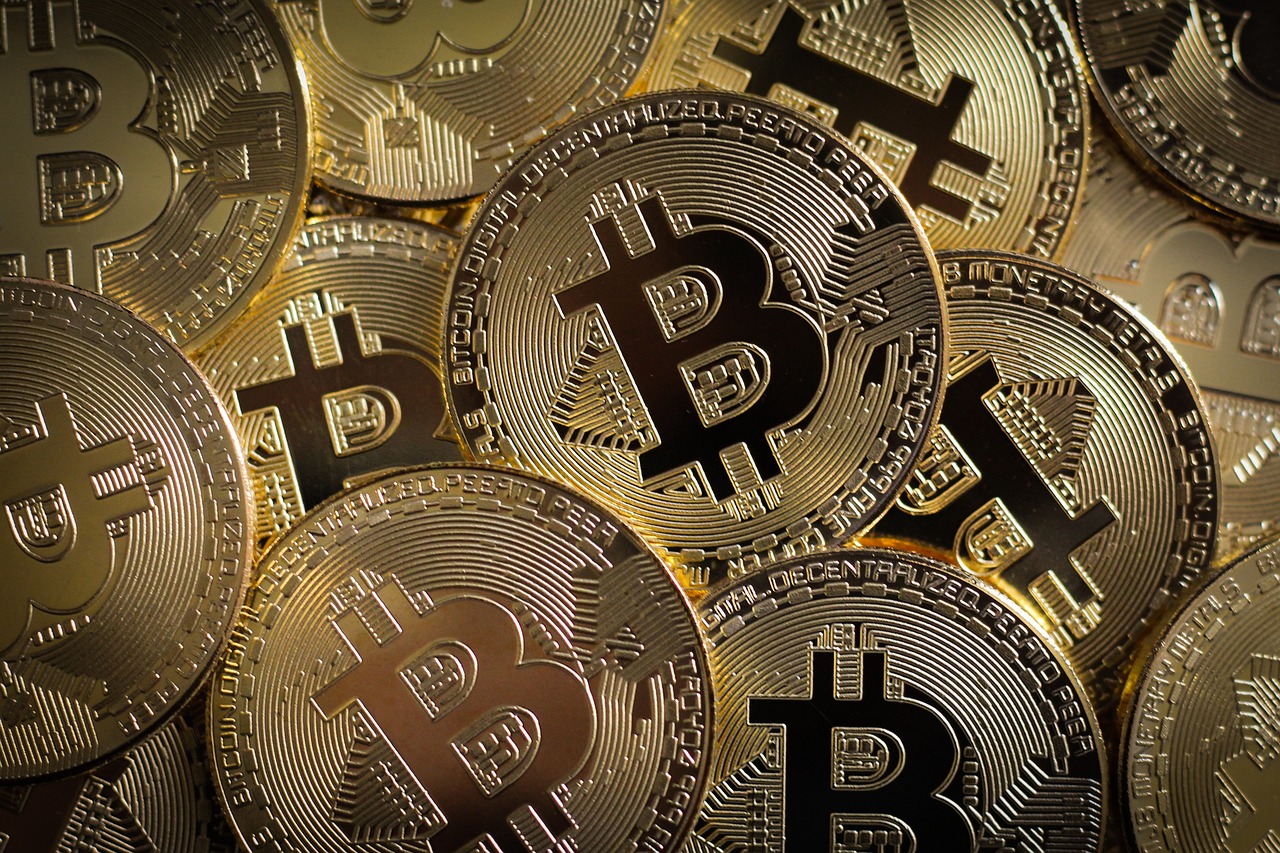
As a decentralized technology, there is no third party to help recover stolen cryptocurrencies. Moreover, it is important that the private keys are kept somewhere safe but easily accessible. This is because the private keys will be needed if the user forgets the password to their wallet. If both the password and private keys are no longer available, the wallet cannot be recovered.
There are two different types of crypto wallets – non-custodial and custodian. Non-custodial wallets, otherwise referred to as ‘self custody’, give investors full control of their private keys. This means that third parties – including the wallet provider, cannot access the cryptocurrencies being stored. Non-custodial wallets are best suited for experienced crypto investors.
How do Crypto Wallets Work?
We will now explore how crypto wallets work in much more detail.
Public Address
All crypto wallets will come with a public address. This will be a unique, long string of numbers and characters. There is no harm in sharing a public address. On the contrary, the public address will need to be sent to the sender when receiving funds.
For example:
- Suppose an Indian investor wants to buy Bitcoin from an online exchange
- They buy 0.5 BTC and now want to withdraw the tokens to a private wallet for safekeeping
- The investor would need to copy their public address from their wallet
- They would then paste the address into the exchange platform when making the withdrawal
- Once approved, the 0.5 BTC should arrive in the private wallet in 10-20 minutes
The above example highlights that crypto transactions are not too dissimilar to bank account transfers. After all, the recipient will provide the sender with their account number so that they can receive funds.
Public wallet addresses, however, are long and complex.
Here’s an example of an online Bitcoin wallet address:
3MgEAFWu1HKSnZ5ZsC8qf61ZW18xrP5pgd
The above wallet address belongs to the crypto exchange OKX, as per BitInfoCharts. The blockchain is transparent, so we can see that the wallet currently holds over 31,551 BTC tokens, valued at almost $979 million.
The transparent nature of cryptocurrencies is something to bear in mind when sharing a wallet address.
Private Keys
Crypto wallets are protected by private keys. They provide full ownership of the wallet and any cryptocurrencies being stored.
For example, if the user forgets the password to their wallet, they can regain access by typing in the private keys. The private keys do not need to be entered on the same device that the wallet is stored on.
As such, the wallet can be accessed at any time, anywhere, as long as the private keys are known. This should be a reminder that private keys should be kept safe in a secure location. Most crypto investors will write their private keys down.
Here’s an example of what a Bitcoin private key looks like:
E9873D79C6D87DC0FB6A5778633389F4453213303DA61F20BD67FC233AA33262
As is evident, private keys are even more complex than public addresses. This increases the risk of making a mistake when writing them down.

This is why the best crypto wallets in India provide users with a ‘backup passphrase’ rather than the full private key. This is usually a string of 12 or 24 words. The passphrase must be written down in the correct order. Otherwise, they won’t work when attempting to recover a wallet.
Custodianship
Understanding how custodianship works is also important when learning about crypto wallets.
Non-custodial wallets do not have access to the user’s private keys. This information is only provided to the owner of the wallet, meaning the owner has full control over their funds.
Some investors in India do not feel comfortable taking the above risks. This is because of a lack of knowledge or experience of wallet security.
An alternative option is to store cryptocurrencies in a custodial wallet. This will be controlled by a third party, which also presents risks. However, the best custodial wallet providers are regulated entities.
Do You Need a Crypto Wallet? Key Reasons Explained
Whether or not a crypto wallet is needed depends on the goals of the individual.
- For example, many Indian investors will buy cryptocurrencies from a regulated platform that does not offer non-custodial wallets.
- This is because the platform will have its own centralized wallet that stores all client-owned cryptocurrencies.
- This enables investors to gain exposure to cryptocurrencies without actually needing a wallet.
- As long as the chosen platform is credible, secure, and regulated – the cryptocurrencies will remain safe.
- When the investor wishes to cash out back to INR, they can sell the cryptocurrencies and make a withdrawal to a bank account or debit/credit card.
Some investors will want more control over their cryptocurrencies. For example, those wanting to send or receive funds via the blockchain will need a wallet.
Moreover, if an investor does not want to trust a third-party custodian, they will need to choose a wallet that offers non-custodial storage. This means that only the investor has access to the private keys. And hence, they can transact freely without requiring approval from a custodian.
A private wallet is also required to invest in DeFi products. For example, earning interest on Aave, Uniswap, or PancakeSwap.
Ultimately, Indian investors will need to consider their objectives and prior experience. In doing so, they can choose the best crypto wallet in India for their individual profile.
What are the Different Types of Bitcoin Wallets?
Investors will need to choose between a software or hardware wallet. Both come with varying levels of security and convenience. For example, software wallets make it easy to transact but come with reduced security. While Bitcoin hardware wallets are much safer but are less convenient.
Still not sure how crypto wallets work? In this section, we discuss the different types of crypto wallets alongside their pros and cons.
Software Wallets
Casual investors and active traders will be suited for a software wallet. These are ‘hot’ wallets, meaning they are always connected to the internet.
This increases the risks, considering that software wallets are not immune to hackers. This is why it’s important to pick a software wallet with adequate security features.
Software wallets come in many different forms. Desktop wallets, for example, can be downloaded to a laptop or PC. Mobile wallets come as mobile apps and offer added convenience.
Web wallets are also an option. These are offered by custodians and can be accessed from any desktop or mobile device with an internet connection.
Some wallets also offer a browser extension. This is also a convenient option but limits access to desktop devices.
Hardware Wallets
Long-term investors and traders with large balances might opt for a crypto hardware wallet. This wallet type comes as a small physical device. The wallet only will need to confirm transactions on the device itself, usually via a PIN.
Crypto hardware wallets are also known as ‘cold wallets’. This is because they are not connected to the internet.
Therefore, this makes them immune to online hacking attempts. One of the best crypto hardware wallets is the Ledger Nano S Plus. This is available to buy for $79 directly from the Ledger website.
Paper Wallets
Another way to keep cryptocurrencies in cold storage is a paper wallet. The wallet’s private keys are written or printed on a sheet of paper and then kept somewhere safe.
Considering that the private keys are always stored offline, hacking risks are alleviated. While paper wallets can be recovered remotely, the process can be cumbersome.
This is because the private keys will need to be manually imported into a software wallet.
Tips for Selecting the Best India Bitcoin Wallet
While the best India Bitcoin wallets come with solid security tools, investors should also consider other factors. For example, does the wallet offer additional features like staking or trading? Investors should also explore how user-friendly the wallet is and whether it’s suitable for their experience level.
Considering how many India crypto wallets there are, knowing which one to choose can be difficult.
We have created a checklist to help Indians choose the best crypto wallet for their needs.
Supported Coins
The first thing to check is what coins are supported by the crypto wallet. For example, Electrum only supports Bitcoin. Similarly, MyEtherWallet only supports Ethereum-based cryptocurrencies.
Indians with a diversified portfolio might consider the Best Wallet. This supports Ethereum, Polygon, BNB and dozens of other popular cryptocurrencies.
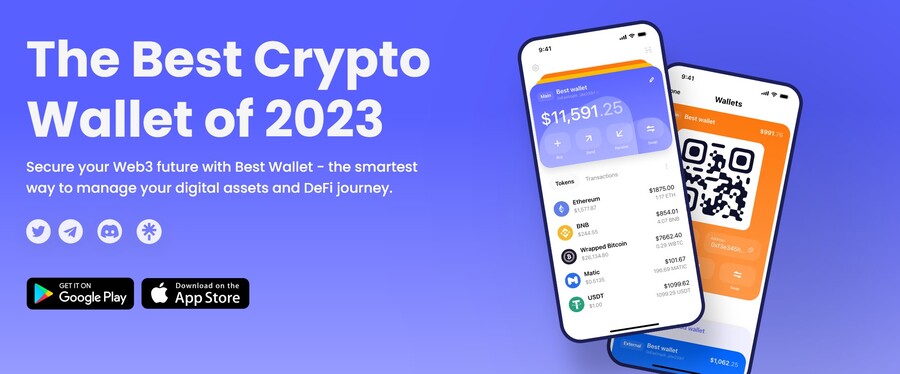
Trust Wallet is also a good option for supported coins. It is compatible with over 70 blockchain networks and allows users to add custom tokens.
Wallet Type
Indian investors should also think about the type of crypto wallet they prefer.
First, consider whether a custodial or non-custodial wallet is more suitable.
- Inexperienced investors might prefer a custodial wallet.
- Those wanting more control over their crypto tokens might be better suited for a non-custodial wallet.
Additionally, investors should think about the device they want to store the wallet on. For example, Best Wallet offers a mobile app with the web app being built. While Ledger is available as a hardware wallet.
Desktop users might consider Exodus, as it supports over 50 blockchain networks and is compatible with Windows, Mac, and Linux.
User-Friendliness
Investors should also ensure the crypto wallet aligns with their experience level.
Complete beginners might prefer a user-friendly custodial wallet like best Wallet. This is because no prior knowledge of wallet security is needed.
More experienced investors might prefer the OKX wallet. This offers non-custodial storage alongside MPC technology. It also supports cross-chain token swaps and staking.
Fees
Basic wallet functions are usually free, such as receiving and storing cryptocurrencies.
Software wallets are also free to download and maintain. But hardware wallets will come at a cost. For example, the Ledger Nano S Plus retails for $79. But the more advanced Ledger Stax costs over $279.
Additionally, check what fees apply when sending cryptocurrencies to another wallet. The GAS charges quoted should reflect the current blockchain fee.
Trading and Other Features
Indians should also explore what features the wallet comes with.
Many of the Indian Bitcoin wallets discussed today allow investors to buy, sell, and trade cryptocurrencies. But it’s important to assess what charges will apply for these services.
For example, Best Wallet users who stake their coins will pay no fees to swap coins.
In contrast, MetaMask charges up to 5% when buying crypto with fiat money. This is also the case with Trust Wallet and Ledger.
The reason for this is that these wallets use third parties for fiat transactions.
Some investors in India will also look for wallets that support staking. This allows users to earn passive rewards without leaving the wallet.
Tutorial on How to Get and Use an India Crypto Wallet
Ready to get started with a crypto wallet but need some guidance?
If so, follow the three-step walkthrough below to set up the Best Wallet mobile app.
Step 1: Download the Best Wallet app
Indian investors need to download the Best Wallet app on the App Store or Google Play to use it.
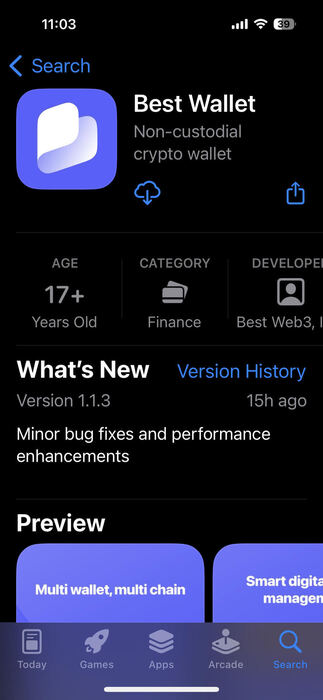
Step 2: Open the Best Wallet App
Once you open the app, you’ll have to verify your email address. If you want to increase your app’s security, now is your chance. You’ll be asked to activate two-factor authentication. You can skip this step if you don’t want to, though. You can always activate this feature later on.
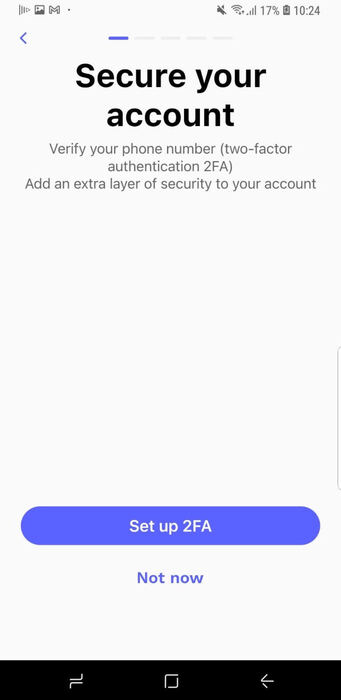
Regardless of whether you skip this step or activate 2FA, you will have to set up a four-digit password. If your device supports biometrics such as fingerprint or face ID, you can activate this feature as well.
Step 3: Create a Wallet
Create your main wallet, which is on the Ethereum blockchain. During this step, you can create multiple wallets and give them names, such as “Storage” or “NFT wallet”. You can also change the background color, so you can easily identify each wallet within the app.
Tap “Continue” when you’re done.
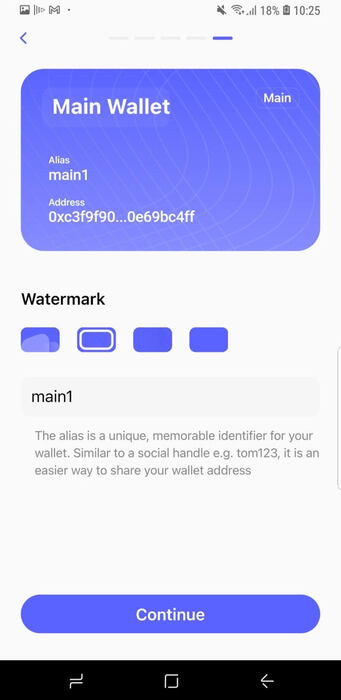
Step 4: Use Best Wallet
With your wallet set up, you can now buy coins with a card or you can receive coins from exchanges or your other wallets. The Best DEX is available for you to start swapping coins and using the wallet. The more you use it, the bigger the chance of getting the $BEST token airdrops during Phase 6 of development.
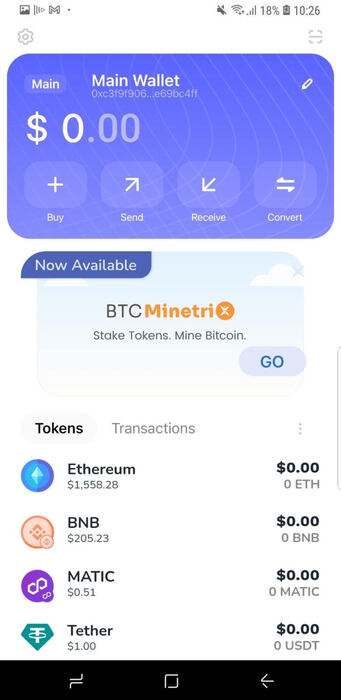
How Safe Are Crypto Wallets?
The type of wallet chosen will determine how safe the cryptocurrencies are. A good starting point is to differentiate between custodial and non-custodial wallets.
If the investor opts for a custodial wallet, then they must do some due diligence on the custodian itself. For example, most custodians are unregulated exchanges. This option should be avoided.
If the investor opts for a non-custodial wallet, then they will be responsible for keeping the cryptocurrencies and private keys safe.
- If the private keys are misplaced and end up in the wrong hands, the cryptocurrencies will likely be stolen
- If the investor forgets their password and no longer has access to the private keys, the cryptocurrencies in the wallet will be lost forever
To reduce the risk of losing access to the non-custodial wallet, look for providers that offer the following security features:
- Multisig permissions, which require transactions to be approved from two or more wallets. This removes a single point of failure.
- A single point of failure can also be avoided by using an MPC wallet. This splits the private key across multiple locations.
- Cold storage wallets will keep the private keys offline at all times, removing their exposure to live servers.
Ultimately, if the investor has a significant amount of cryptocurrency to hand, cold wallets are the best option.
The Verdict
As cryptocurrencies are increasingly becoming popular in India, investors now have many options when selecting a wallet.
Overall, the best crypto wallet in India is Best Wallet. Access the wallet via its iOS or Android app and swap coins between multiple blockchains. Future releases will include market insights, crypto news and token analytics, which will make Best Wallet the most powerful Web3 wallet.
References
- https://ethereum.org/en/developers/docs/gas/
- https://shop.ledger.com/pages/hardware-wallets-comparison
- https://brokercheck.finra.org/firm/summary/298361
- https://www.bnbchain.org/en/smartChain
- https://coinmarketcap.com/currencies/bitcoin/
- https://pancakeswap.finance/
- https://opensea.io/
- https://aave.com/
- https://ethereum.org/en/wallets/find-wallet/
- https://coinmarketcap.com/exchanges/okx/
- https://bitinfocharts.com/bitcoin/address/3MgEAFWu1HKSnZ5ZsC8qf61ZW18xrP5pgd
- https://help.myetherwallet.com/en/articles/6512619-using-mew-offline-current-mew-version-6
- https://apps.apple.com/us/app/mew-crypto-wallet-defi-web3/id1464614025
- https://play.google.com/store/apps/details?id=com.myetherwallet.mewwallet&hl=en&gl=US
- https://www.alchemy.com/overviews/mpc-wallet
- https://www.lexisnexis.com/en-gb/glossary/kyc
FAQs
What crypto wallets are available in India?
Many crypto wallets are available in India, and some of the best include Best Wallet, YouHodler, Ledger, and Trust Wallet.
Is Trust Wallet safe in India?
Yes, Trust Wallet is a safe, non-custodial wallet offering decentralized storage to many Indian crypto traders.
Is MetaMask available in India?
Yes, MetaMask is available in India and remains one of the most popular non-custodial wallets in the market.
What is the best crypto wallet for Indian traders?
The best crypto wallet for Indian traders is Best Wallet, available on iOS and Android.

